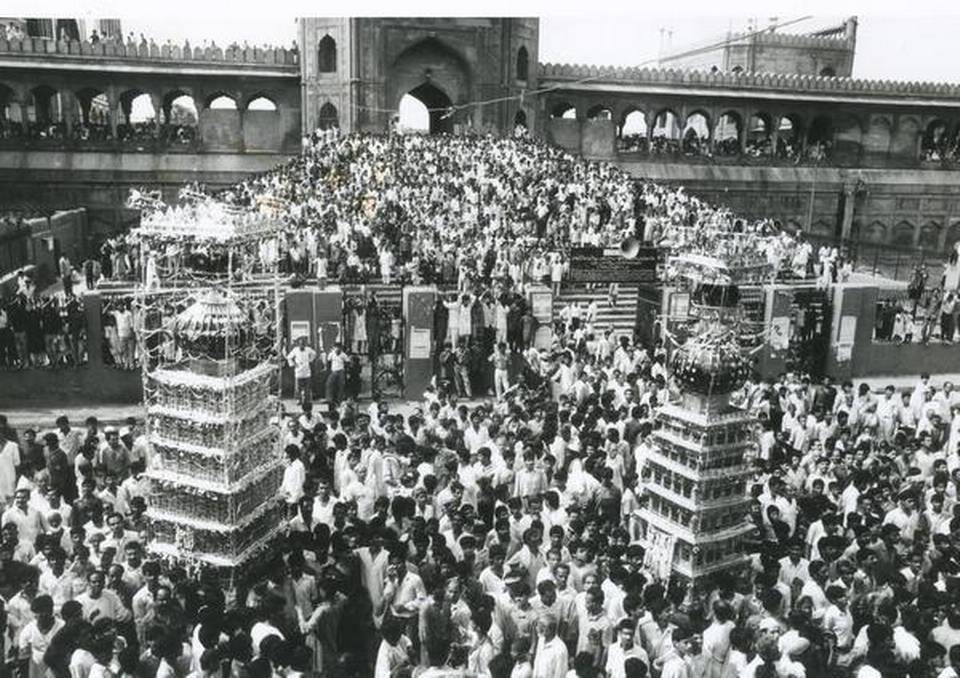Muharrum, which marks the first year of the Islamic calendar, has been observed in Delhi since the time of Qutubuddin Aibak, the first ruler of the Slave dynasty in the 12th Century. The succeeding Sultans carried on the tradition though they were mainly Sunnis and not Shias, for whom Muharrum is a day of great mourning as it commemorates the martyrdom of Hazrat Imam Hussain, the grandson of Prophet Mohammad at the Battle of Karbala in the late seventh century. The tomb of the Imam is a highly venerated spot in Iraq, where the memorable battle took place between him and the forces of Yaazid, regarded as a tyrant, who wanted to become Imam or head of the Islamic fraternity after the death of Hazarat Ali, son-in-law and nephew of the Prophet. Imam Hussain and his brother, Hassan were Hazrat Ali’s sons.
According to Thehindu.com, This year Muharrum would be the scene of Tazia processions and mourning in the Imambaras of the Shias. The main centre is Lucknow, whose nawabs were the ones who built the city’s famous Imambaras. It was known as Awadh then and the poets of the principality were the ones who wrote and recited the Marsias or elegies of Muharrum. Among them, the most famous was Mir Anis, who has given a wonderful description of the Battle of Karbala, though it is more romantic than factual. The poet says that the sun got darkened and the birds forgot to sing and even the lion’s roar got stuck in its throat after Imam Hussain and his 70-old companions, including children, died at Karbala, many of them because of thirst in the harsh, sandy plain.
The Marsias recount all this in vivid detail, bringing copious tears to the eyes of the mourners, among them women in black burqas beating their chests, unlike of course the men who beat themselves so much that their bodies are covered with blood amidst chanting of “Ya, Hussain, hum na hue” (Alas, Hussain we were not present at the battle to lay down our lives for you).
The Mughal rulers were Sunnis, though Jahangir’s wife Nur Jahan (like Mohd Shah’s queen, Qudsia Begum) was a Shia and propagated the sect at the court by inviting Qazi Shustri, a scholar from Shustar on the borders of Iran and Iraq.
The main dish eaten at Muharrum is khichra or halim, a mixture of all the grains and meat, as the same was eaten by the famished Karbala martyrs at their last meal after all the food was exhausted.
Chehlum, the 40th day after Muharrum, is another occasion for taking out tazias, replicas of the tomb of Hazrat Imam Hussain in Iraq.

